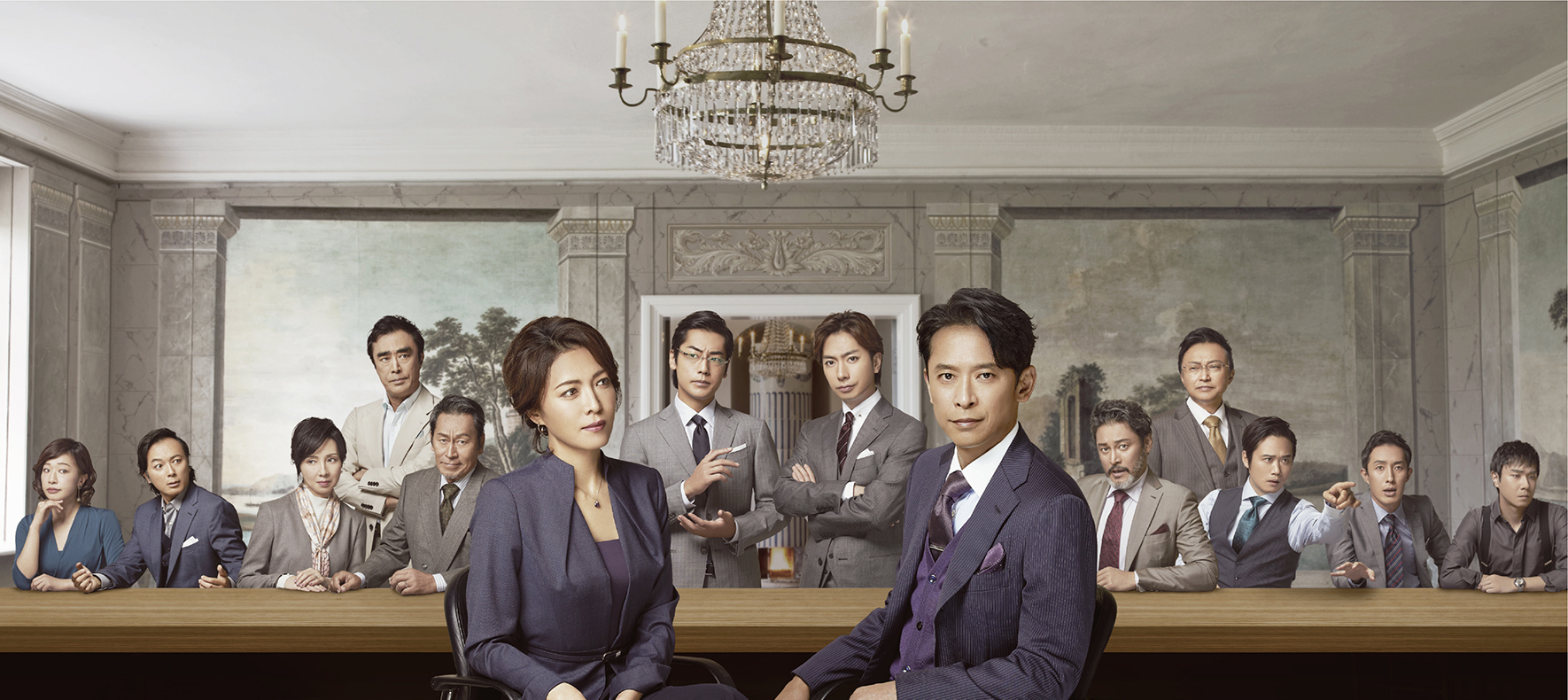
He may live in the Big Apple, but in the last few years J.T. Rogers has spent a lot of time here as the creator and scriptwriter of an upcoming HBO series based on 2009’s true-life book “Tokyo Vice: An American Reporter on the Police Beat in Japan” by long-time expatriate (and current Japan Times columnist) Jake Adelstein.
“Jake and I have been friends since high school in Missouri,” 53-year-old Rogers says, “and I’d always wanted to make a show inspired by him creating a new life here as a crime reporter (for a major Japanese daily newspaper) — because, you know, the stakes aren’t like covering insurance,” he adds with a nod to the country’s notorious yakuza groups.
Recently, though, the world-famous playwright has had another compelling reason to savor the country whose food he professes to love — “and especially its white sliced bread.”
That’s because his 2017 Tony award-winning play “Oslo,” based on the hidden story behind landmark 1990s moves toward Mid East peace, opened recently with an all-Japanese cast at the New National Theatre, Tokyo, where it runs through Feb. 23.
Like the TV series, which traces its characters’ intersecting lives — with Adelstein played by American actor Ansel Elgort among a mainly Japanese cast subtitled in English, including “Last Samurai” star Ken Watanabe — Rogers notes that “Oslo” also shares some dark undercurrents as it focuses on clandestine talks that led to the Palestine Liberation Organization recognizing the State of Israel and Israel recognizing the PLO as the representative of the Palestinian people.
In particular, as he explained in our recent Zoom interview, “If the Palestinians were discovered to be doing that, they would be killed; while if the Israeli people did so the government would fall.”
But rather than presenting a history of those talks in Norway that preceded 1993’s Oslo Accord, Rogers’ play — directed by foreign drama specialist Satoshi Kamimura — mixes facts and his own dramatization of how a young Norwegian diplomat couple named Mona Juul (played by Kei Aran) and Terje Rod-Larsen (Masayuki Sakamoto) managed to make them happen at all.
“Rod-Larsen came to New York to see my play ‘Blood and Gifts’ about CIA spies in Afghanistan,” Rogers recalls. “He loved it, especially that it’s authentic about diplomacy and what he calls the ‘double gaming’ you have in politics, chess and with spies — what you see and something underneath you don’t.
“So we had a drink together and though I didn’t know him and never met him before he told me the story of that Oslo Accord from his point of view.”
It was then, Rogers says, that though like most Americans he’d thought President Clinton’s administration brought it about, he was astonished to discover that just wasn’t true.
Instantly fascinated, he at once thought: “That’s a play I want to write — it’s not a message play; it’s a more exciting and thrilling story about politics and people’s passion — and it has humor.”
Soon after, he flew to Norway to interview the diplomat and his wife and others, and visit places that figured in the talks.
“Rod-Larsen told me that he and his wife and other Norwegian diplomats came up with the idea to secretly bring PLO and Israeli government representatives to a mansion in the middle of the woods to drink Scotch and talk about their families and try to make peace.”
Hence “Oslo” is what Rogers describes as “historically true fiction … if that makes sense.
“What I mean is that though the main things in the play actually happened, all the dialogues and characters are invented by me but based on real people — some very much like real people.”
As a dramatist, he says, it was the “super-high tension” surrounding the whole chain of events that especially appealed to him.
“It was like an actual thriller. People secretly coming into a country. It would be like a revelation that North Korea and South Korea were secretly meeting to end the war. That’s how dangerous the meetings were — but when you write a play, you want the stakes to be high.
“Also, I was very moved by a story about adversaries who had the courage to come into a room and talk to each other and treat each other not as enemies, animals or evil, but as human beings. ‘I hate your ideas,’ in other words, ‘but I acknowledge you are a person and slowly I learned to like you.’ What the play is about is that people are changed by seeing the humanity in others.”
Regarding the practicalities of fashioning this “historically true fiction,” Rogers says he usually makes rules when he’s creating a story so he doesn’t “get lost with too many options.”
With “Oslo,” he made just two: “I only focused on the actual negotiation, not before or after. And also, I wanted the play to be honest and difficult, but I didn’t want it to upset audiences so much they’d stop listening to the story.”
Consequently, he opted to not write about central figures such as (PLO Chairman) Yasser Arafat and (Israeli Prime Minister) Yitzhak Rabin, about whom many have very strong opinions, but about “those who are one step below the king.” That way, he hopes, “people will just follow the play and make up their minds afterwards.”
Nonetheless, Rogers did suggest in light of his experience writing this play” why the 1993 Oslo Accord didn’t long survive.
“There was such a hunger in the world for peace that when it appeared it was shocking and exciting. So people didn’t really pay attention to what it actually was.
“It was presented in the media as a peace deal that solved all the problems — so when more problems happened it was immediately viewed as a failure.
“In reality, however, it was an agreement to make a peace agreement. That was historically momentous, but it wasn’t the same as a peace deal.
“It was misrepresented by the America press completely, and I don’t think that misunderstanding has been acknowledged enough.”
Even so, I put it to Rogers that because people here are not so familiar with those events, many may prefer to watch “Tokyo Vice” rather than see his play.
But unfazed he replied: “The play is funny and sexy, and you don’t need to know anything about politics before you go to see it.
“It’s a play, it’s an entertainment, not a lecture. Like Shakespeare’s plays, you don’t need to know anything because the play will tell you.”
*** “Oslo” runs through Feb. 23 at the New National Theatre, Tokyo. For details, call 0570-3337 or visit https://www.oslo2021.com/.

